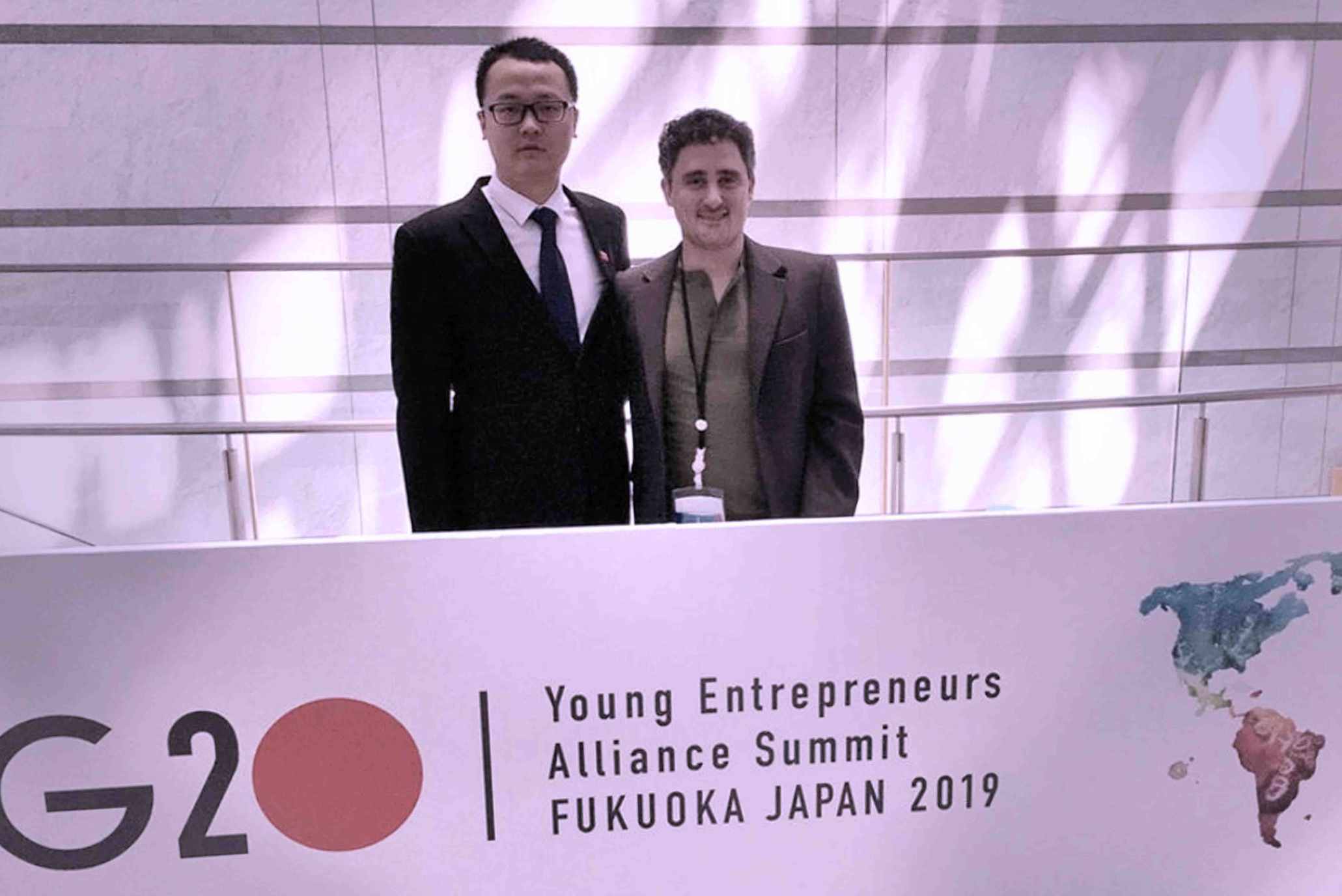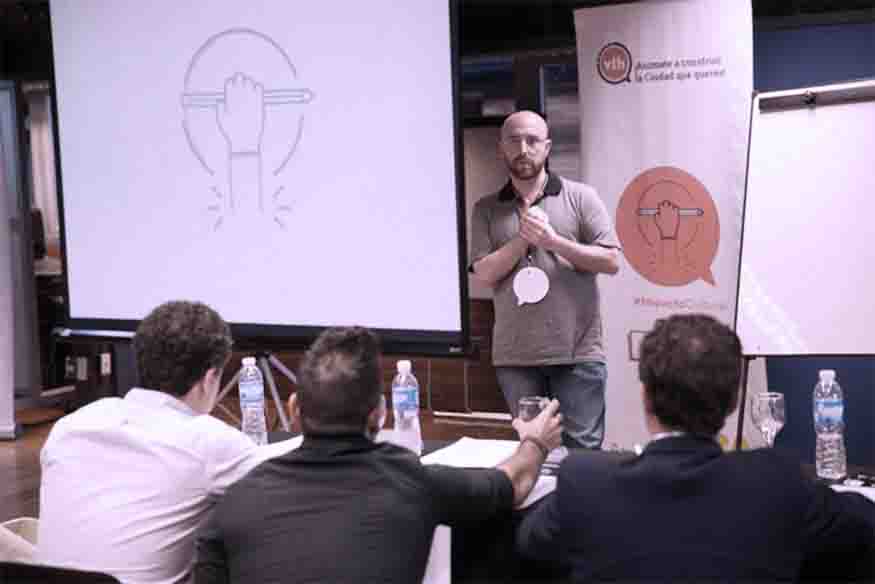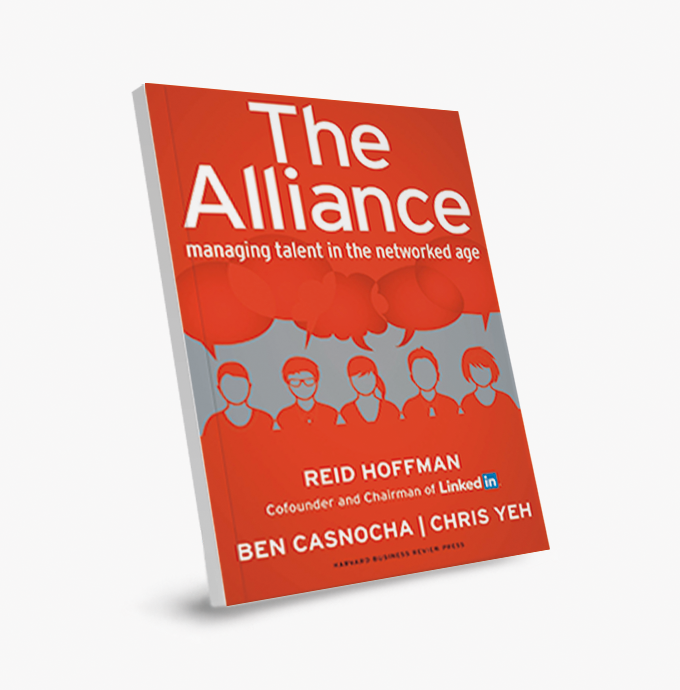

from Ben Casnocha, Chris Yeh, and Reid Hoffman
In "The Alliance," the concept of dynamic partnerships between employers and employees is explored, emphasizing tours of duty, mutual investment, and trust. This innovative approach to career development and leadership offers a blueprint for building flexible roles and fostering an entrepreneurial spirit within organizations, aligning closely with the core principles of entrepreneurship, innovation, and business strategy.
“Far and away the best prize that life has to offer is the chance to work hard at work worth doing.”
BRIEF BOOK SUMMARY
"The Alliance" reimagines the employer-employee relationship for the modern era, proposing a model where both parties work together as allies rather than in a traditional hierarchical structure. This alliance is built on mutual trust and benefit, where employers offer employees the chance to develop their careers and skills through various "tours of duty," while employees commit to contributing to the company's success during their tenure. This approach acknowledges the dynamic nature of careers today and the need for businesses to be adaptable and innovative.
The book introduces the concept of "tours of duty" as the cornerstone of this alliance, suggesting a framework where each tour is a specific, mutually beneficial contract with clear goals and timelines. This not only helps employees gain meaningful and impactful work experiences but also aids companies in achieving their strategic objectives with highly motivated and engaged employees. These tours encourage personal and professional growth, leading to a more fulfilling work experience.
Networking and building relationships are central themes, emphasizing the importance of leveraging connections for mutual gain. The authors advocate for a shift in perspective, seeing departing employees not as a loss but as future ambassadors or potential boomerangs who could bring back valuable external insights and experiences. This perspective fosters a long-term network of allies who support each other's growth and success, even outside the confines of the company.
The book also discusses the importance of clear communication and honest conversations about career aspirations and company goals. This open dialogue ensures alignment between the employee's career path and the company's objectives, creating a more transparent and supportive work environment. It helps in building trust and loyalty, which are crucial for the alliance model to thrive.
Lastly, "The Alliance" offers a pragmatic approach to talent management in the fast-paced, ever-changing business world. By treating employees as allies and investing in their development, companies can create a flexible, adaptive, and innovative workforce capable of navigating challenges and seizing opportunities. This model benefits both employees and employers, leading to sustainable growth and success in the networked age.
WHY SHOULD YOU READ THIS BOOK? By Francisco Santolo
"The Alliance" offers a rich perspective on the evolving dynamics of modern work relationships. This book proposes forming alliances rather than adhering to traditional employer-employee relationships, resonating with a future that inclines towards crowdsourcing and flexible co-creation among more entrepreneurial and freelance individuals. It advocates for a partnership where both parties commit to each other's growth and success for defined periods with specific objectives, facilitating flexibility, co-creation, and shared value without limiting each other’s growth.
One aspect that stands out is the concept of "tours of duty," providing a structured yet flexible framework for career development within an organization. From my experience, fostering an entrepreneurial spirit within teams—with clear missions and expected outcomes, combined with a high level of autonomy and interdisciplinary work—usually fuels innovation. Such approaches enhance engagement, mastery, and loyalty, while also preparing companies and employees for the fluidity of today's career paths.
Another pivotal theme is the strategic use of network intelligence, emphasizing the importance of leveraging collective networks for business growth and innovation. Interconnectedness is crucial in the business world, where insights and opportunities often emerge from the strength and diversity of one's network. Emphasizing transparent communication and trust further strengthens the foundation for these alliances.
The authors' expertise in entrepreneurship and scaling successful corporations permeates the book and inspires the search for new solutions. Their exploration of the complexities of modern employment underscores the broader themes of adaptability, collaboration, and trust. By embracing these concepts, leaders can foster a more dynamic, loyal, and innovative workforce prepared to face the challenges and opportunities of the future.
Francisco Santolo
RELATED BOOKS WE RECOMMEND
"Work Rules!: Insights from Inside Google That Will Transform How You Live and Lead" by Laszlo Bock
This book offers a deep dive into the innovative workplace culture at Google, complementing "The Alliance" by exploring how freedom and creativity within the framework of clear principles can drive exceptional organizational success. Bock's emphasis on transparency, employee empowerment, and culture aligns with the strategic management of talent.
"Lean In: Women, Work, and the Will to Lead" by Sheryl Sandberg
Sandberg's book on leadership and overcoming barriers in the workplace provides insights into building effective workplace alliances, especially by highlighting the importance of mentorship and support networks in career development.
"Conscious Business: How to Build Value Through Values" by Fred Kofman
Kofman's work expands on "The Alliance" by delving into the importance of integrity, responsibility, and emotional intelligence in business. It underscores the significance of aligning personal and organizational values, further enriching the discourse on mutual investment and trust in professional relationships.








